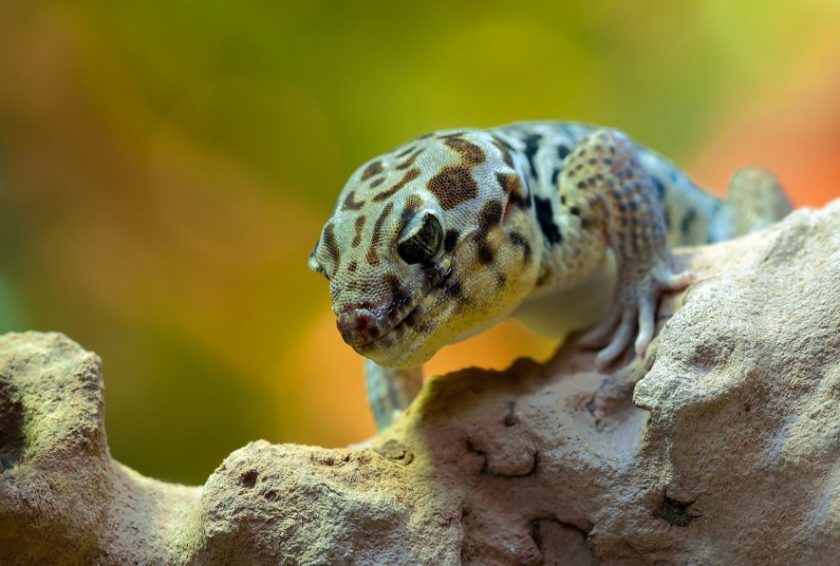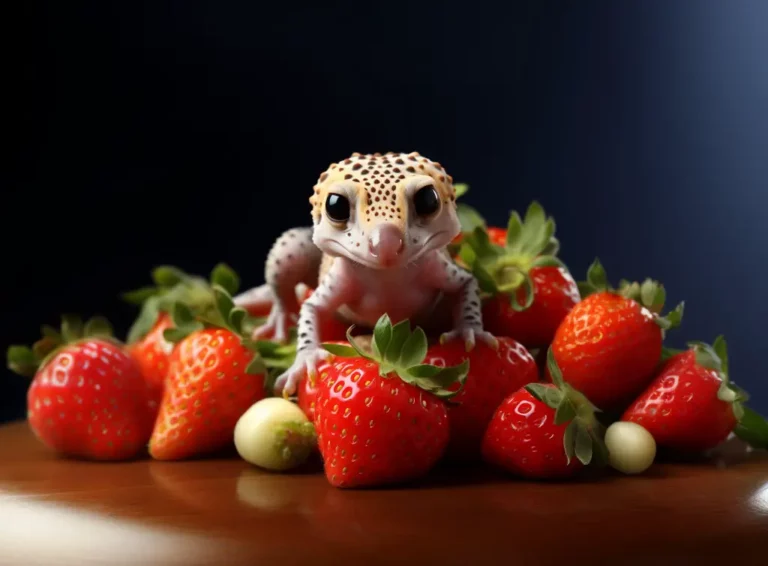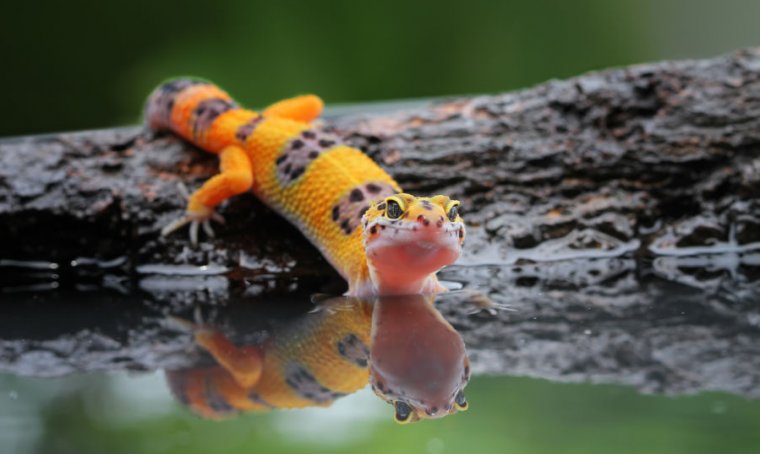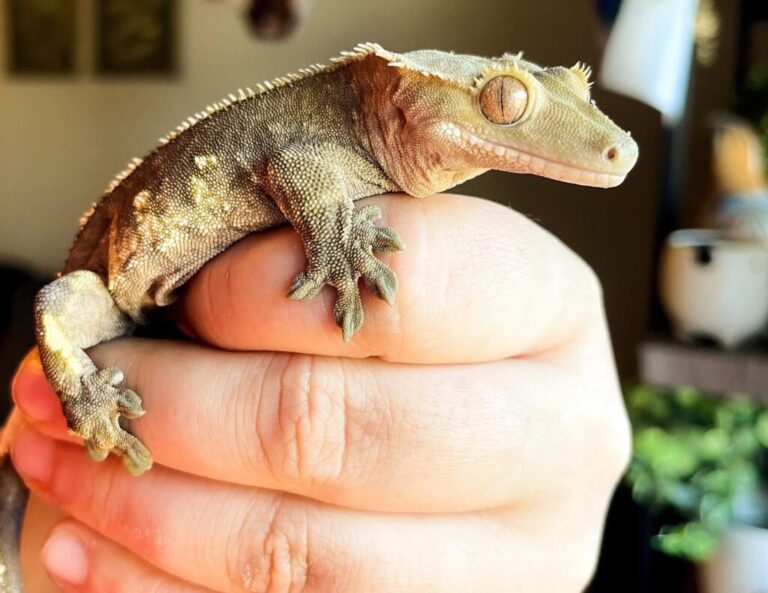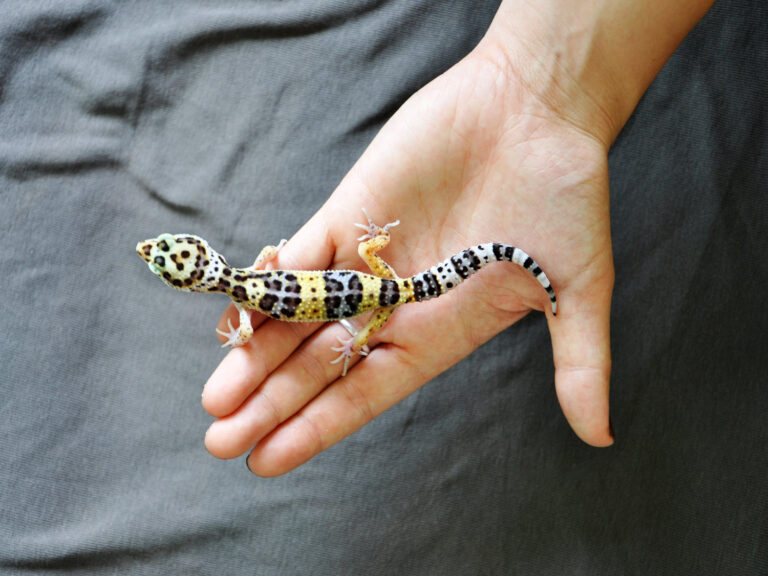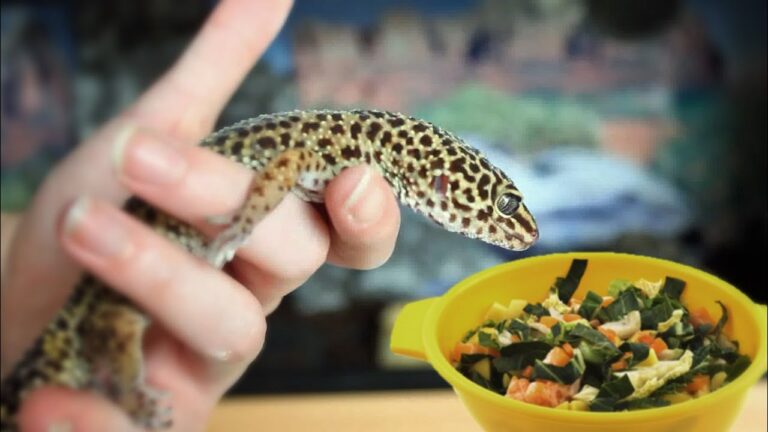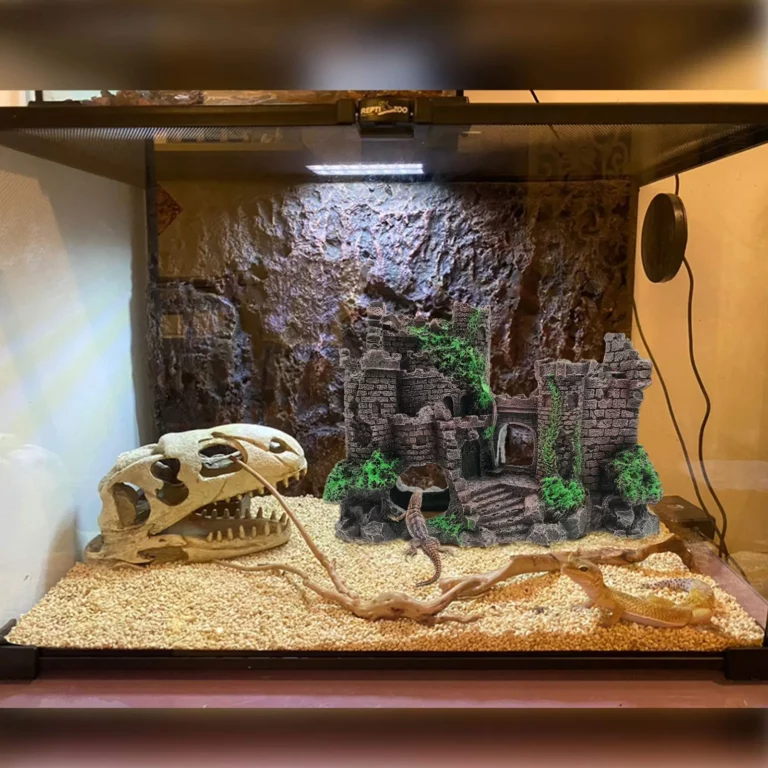Do Geckos Eat Ants? Exploring the Fascinating World
As I crouched low in the warm, sun-drenched courtyard of my tropical backyard, I found myself captivated by the miniature drama unfolding before my eyes. A nimble, unassuming gecko perched gracefully on a sun-bleached stone, its beady eyes fixed on a seemingly endless parade of tiny ants marching in regimented columns. Mesmerized by the intricate choreography of nature, I couldn’t help but wonder: do geckos eat ants?
Yes, while some geckos may consume it, the majority tend to avoid them due to the presence of foul-tasting formic acid and the limited nutritional benefits offered by ants. Moreover, certain species possess dangerous bites, making them a formidable threat to geckos, particularly when encountered in significant numbers.
Join me as we delve deep into the secret lives of geckos, unveiling the hidden truths about their dietary habits and uncovering the ecological roles they play in the intricate tapestry of our natural world.
Effective Strategies for Managing Ant Infestations in Your Gecko’s Vivarium
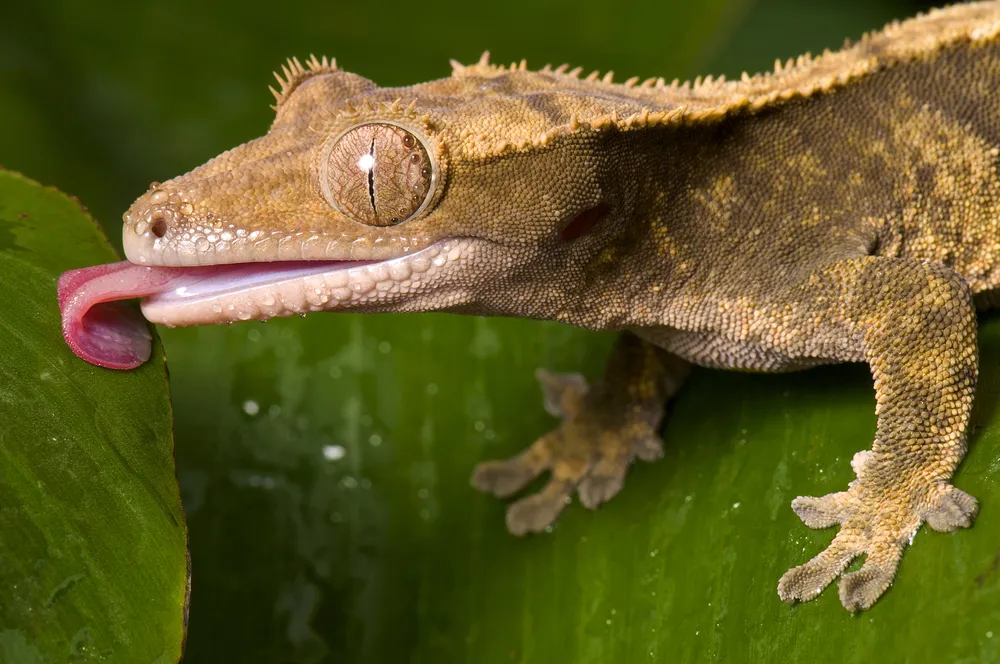
Several effective and safe methods can be employed to deal with ants residing in or feeding in the vivarium. Here are the most recommended approaches, to ensuring the well-being of your gecko:
Barrier of Petroleum Jelly: Apply a layer of petroleum jelly, such as Vaseline, either at the base or around the top perimeter of the vivarium. This barrier prevents them from infiltrating the enclosure.
Double-Sided Tape Defense: Surround the vivarium’s exterior, either at the bottom or the top, with double-sided tape. Ensure the tape is wide or multiple rounds of thinner tape. Although some may get caught, they generally avoid walking on the tape. Take care not to use double-sided tape near heat sources; instead, employ insulation or electrical tape with the sticky side facing up.
Natural Repellents: Cinnamon or peppermint oil can serve as eco-friendly ant deterrents. Apply these substances only outside the vivarium to keep them at bay. Cinnamon effectively erases the ants’ scent trails, while vinegar can be used to cleanse floors and windows of these trails. For carpets, sprinkle cinnamon where they are seen, leave for an hour or two, then vacuum. Follow up with double-sided tape for added assurance.
Ant Poison: Consider ant poison or traps only as a final option. Importantly, do not use poison if ants or a colony are inside the vivarium, as it could inadvertently harm your pet upon its return. Also, ensure other pets are kept away from any poisonous substances.
Once your gecko is safe and the ant issue is resolved, embark on a thorough vivarium cleaning to eliminate any remnants of ants. These same precautions can be applied to protect your gecko’s food.
Taking these steps diligently and with care will ensure your pet’s comfort and safety, while also maintaining a harmonious vivarium environment.
Comprehensive Guide to Thoroughly Cleaning an Ant-Infested Vivarium for Your Gecko
Here’s a step-by-step approach to follow:
Clear the Vivarium: Begin by removing all items from the vivarium, including substrate, plants, hides, and decorations. It’s advisable to have two separate work surfaces—one for placing the ant-infested items and another for post-cleaning storage.
Dispose of Substrate: Bag and dispose of the substrate without attempting to remove the ants. Doing so not only risks missing some ants but also retains the colony’s scent, inviting a potential re-infestation.
Vivarium Cleaning: Thoroughly clean and disinfect both the interior and exterior of the vivarium using a suitable vivarium cleaner and disinfectant. This process will eliminate any lingering scent trails. Pay equal attention to cleaning the mesh cover.
Clean Accessories: Scrub food and water dishes, toys, hides, and other accessories that were inside the vivarium with soapy water and a toothbrush. Ensure you reach into cracks and crevices where stray ants may hide. This step is vital for removing any residual ant scent. Allow these items to dry completely before returning them to the vivarium.
Care for Plants: If plants were present in the vivarium, consider either thoroughly cleaning or replacing them. Remove soil from the roots, as ants may hide there. Wash the leaves and stems meticulously with clean water, ensuring no ants are concealed in the folds of the plants.
Reassemble the Vivarium: Once all items are cleaned and dried, reintroduce them into the vivarium, adding a fresh layer of substrate. If you choose to apply double-sided tape around the vivarium’s exterior, now is the time to do so.
Surrounding Area Cleaning: Before relocating the vivarium, clean the surrounding area diligently with vinegar. This step is crucial to eliminate any remaining scent trails and ensure there are no lingering ants in the vicinity.
Preventative Measures: To prevent future ant incursions, be proactive. Remove any uneaten insect fragments from your gecko’s feeding area, as they are attracted to leftover prey items, especially crickets. Ensure that your pet food is free from ants before offering it to them.
Safe Ant Species for Geckos to Consume?
Here are some safe ant species that you can consider:
- Black Garden Ant (Lasius niger)
- Red Imported Fire Ant (Solenopsis invicta)
- Harvester Ants (Pogonomyrmex spp.)
- Sugar Ants (Camponotus spp.
- Carpenter Ants (Camponotus spp.)
- Small Native Ant Species
Immediate Actions for a Leopard Gecko that Has Ingested an Ant
Here’s a proactive course of action to follow in such a situation:
First and foremost, promptly return your gecko to its vivarium, ensuring it is a secure and ant-free environment. Alternatively, transfer it to another enclosure that is ant-free, preferably another vivarium.
Should you spot more ants within the vicinity, make an effort to capture a few of them to present to your veterinarian. These specimens may aid in the diagnosis and treatment of any potential issues that may arise.
Further, vigilance is paramount. Keep a close watch over it for any signs of poisoning or illness. These red flags may include lethargy, unsteady movements, loss of appetite or interest in food, and a decline in water consumption.
Should you observe any of these concerning symptoms, do not hesitate; to seek immediate veterinary attention for your beloved pet.
In addition, it’s important to recognize that the repercussions of a gecko consuming it extend beyond potential illness. In certain instances, they may attempt to establish residence within your gecko’s vivarium. Such unwelcome visitors could pose a threat to your gecko, potentially leading to aggression or harm.
Therefore, it is of utmost importance to promptly and effectively eliminate any it presence within your gecko’s habitat to safeguard their well-being and ensure a safe, ant-free environment.
Feeding Ants to Your Gecko: A Nutritional Guide
Here’s a comprehensive approach to feeding ants to your gecko:
Live Ants for Adult Geckos:
For adult geckos, live ants can be a stimulating and nutritious option. Select a modest quantity of ants, ensuring they won’t overwhelm your pet. Place both the gecko and the live ants in an enclosure, allowing it to engage in a satisfying feast. To enhance the nutritional value of this live snack, it’s highly advisable to dust the ants with powdered supplements before feeding.
Feeding Dead Ants:
Offering deceased them provides a practical solution, particularly when you want to provide a substantial quantity without the risk of live posing a threat to it. You can render lifeless by subjecting them to high temperatures or freezing, by purchasing pre-deceased ants from a reputable pet store. This method is especially suitable for young geckos. As with live ants, always remember to dust the deceased it with powdered supplements before introducing them.
Benefits and Drawbacks of Ant Consumption by Geckos:
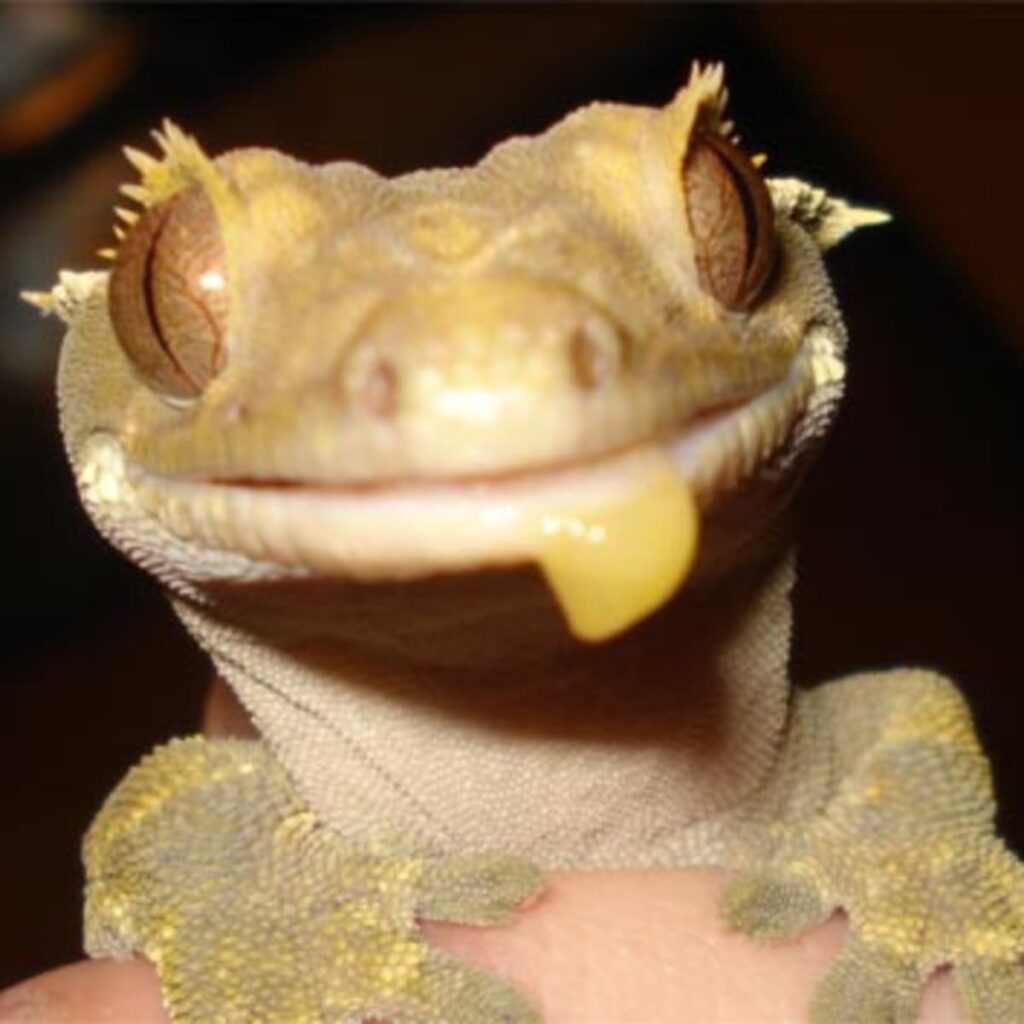
Feeding ants to geckos can offer various advantages and potential disadvantages, necessitating thoughtful consideration.
Advantages
Dietary Diversity: Ants contribute to a gecko’s diet with a range of nutrients, thereby diversifying their nutritional intake.
Stimulation and Enrichment: They derive both mental and physical stimulation from hunting and capturing live ants, fostering natural behaviors, and warding off monotony.
Alignment with Natural Diet: In the wild, they often incorporate ants into their diet, aligning the captive gecko’s feeding habits with their instincts.
Hydration Support: They typically contain some moisture, potentially aiding hydration, especially if they have challenges drinking from a water source.
Risks
Stings and Bites: Certain species possess stinging or biting capabilities, potentially posing harm to geckos during consumption or capture. Careful species selection is crucial to prevent harm.
Pesticide Exposure: They collected from areas treated with pesticides or chemicals may transfer toxins to geckos, leading to poisoning or other health complications.
Digestive Concerns: Excessive consumption may result in digestive issues or dietary imbalances, underscoring the importance of moderation.
Disease Transmission: They can carry diseases or parasites that might be transmitted to them, demanding thorough observation of their health before inclusion in the diet.
Allergic Sensitivity: Just as with any new food item, they may exhibit allergies or sensitivities to ants, warranting close monitoring post-introduction.
FAQs
Do Geckos Eat Ants as a Regular Part of Their Diet?
No, Geckos have diverse diets, and some species do consume ants as part of their regular meals.
What Attracts Geckos to Ants?
Geckos are attracted to ants due to their small size, abundance, and the high-protein content in ants.
Do All Gecko Species Eat Ants?
No, Not all gecko species eat ants. Some prefer other insects or invertebrates, while others may consume ants occasionally.
How Do Geckos Capture Ants?
Geckos use their lightning-fast tongues or agile hunting techniques to catch ants. They can be quite adept at capturing these tiny insects.
Are Ants a Primary Food Source for Geckos?
No, For most gecko species, ants are not a primary food source. They usually consume a variety of insects and even small vertebrates.
Are There Any Benefits to Geckos Eating Ants?
Yes, Ants provide geckos with essential nutrients, including protein, vitamins, and minerals, which can benefit their overall health.
Are There Any Risks Associated with Geckos Eating Ants?
Yes, While ants can be a nutritious part of a gecko’s diet, some ant species possess chemical defenses that might deter geckos or even be harmful if consumed in large quantities.
What Other Foods Do Geckos Eat Besides Ants?
Geckos have diverse diets that may include crickets, flies, moths, spiders, and even fruit. Their preferences can vary based on their species and environment.
Can Geckos Survive Solely on an Ant-Based Diet?
No, Most gecko species cannot survive solely on ants because they require a more balanced diet to meet their nutritional needs.
Final words
In conclusion, the question of whether geckos eat ants can be rather intriguing. From my perspective, it’s clear that while some may occasionally indulge in ants, most of us tend to steer clear of these insects.
Moreover, the primary reasons for this preference are the unappetizing formic acid content in ants, which imparts an unpleasant taste, and the limited nutritional value they offer.
Furthermore, the presence of ant species with potent bites can pose a considerable threat to geckos, especially when encountered in large numbers. So, while they may occasionally find their way into our diet, they’re not typically a favored choice among geckos like myself.

